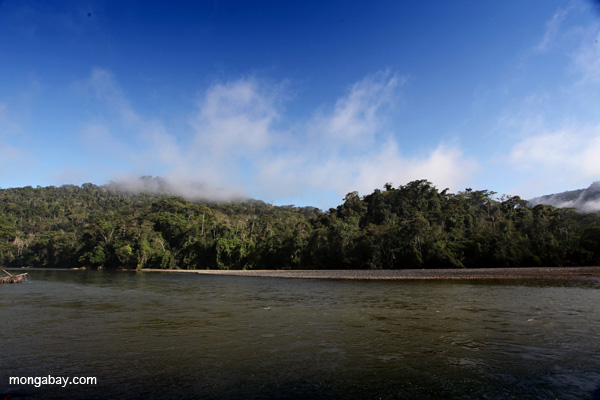
Losing more than 300,000 hectares of forest per year between 2005 and 2010, Bolivia has one of the highest deforestation rates in the world.
REDD at a crossroads in Bolivia
November 30, 2011 - mongabay.com
The report, titled Off the Market: Bolivian forests and struggles over climate change, highlights two factors in Bolivia's importance in discussions over how to compensate tropical countries for forest conservation efforts. The first is geographic: Bolivia has both large tracts of Amazon rainforest and a high deforestation rate, which is largely the product of unregulated expansion of industrial agriculture. The second is political: Bolivia has emerged as an outspoken critic of market-based approaches to cutting greenhouse gas emissions and is "an important ally" to climate justice movements opposing carbon markets.
The report says that while cash-poor Bolivia could potentially earn heaps of money from the carbon market, it remains committed to opposing market-based REDD, partly because forest conservation by itself won't be enough to mitigate climate change without substantial reductions in greenhouse gas emissions from industrial activities in rich economies. Furthermore carbon offsets don't reduce actual greenhouse gas emissions, reasons Bolivia.
"The Bolivian government has affirmed that it will work to prevent a global forest carbon market, and towards a vision of manejo integral ('integrated management') that does not commodify Bolivian forests," says the report.
"If Bolivian resistance to the marketization of forest carbon is overcome, there will be global ramifications. Regardless of positive benefits for specific communities and forests that market-based REDD projects may create, if a global system yields cheap carbon credits that allow fossil fuel companies to continue to pollute, communities both within and beyond Bolivia's borders will be affected. In this sense, the stakes of the struggle over REDD could hardly be higher - nor Bolivia's role more important."